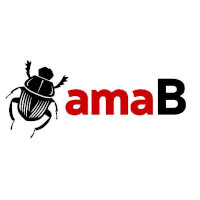Last night journalists from the amaBhungane Centre for Investigative Journalism learnt that they had been gagged by a secret court application and ruling.
The Moti Group approached the Johannesburg High Court on Tuesday requesting an urgent interdict and demanding the immediate return of thousands of ‘leaked’ documents.
Normally, journalists would be given an opportunity to argue their case, but the application was brought ex-parte and heard in-camera, meaning that they were not even aware of the application until after Judge John Holland-Muter had made his ruling.
The interim interdict, granted on Thursday, gives amaBhungane and its journalists 48 hours to return any documents belonging to the Moti Group. It also prevents amaBhungane from publishing any new articles based on the documents until October, when the journalists will finally have a chance to plead their case.
The Moti Group, and its founder Zunaid Moti, have been scrambling to contain a leak of damaging information since the end of last year after a former employee, Clinton van Niekerk, allegedly downloaded thousands of company documents before resigning from the company.
Van Niekerk is understood to be in witness protection.
In an affidavit, former Treasury director-general Dondo Mogajane – now the chief executive of the Moti Group – told the court that “in the wrong hands, [the documents] will cause the Moti Group reputational damage if a false narrative based on the stolen documents is advanced, which is currently the case”.
He goes on to accuse amaBhungane of having a “vendetta against the Moti Group” and “publishing a series [of] highly distorted inaccurate and defamatory reports”, a reference to the #MotiFiles investigations that amaBhungane began publishing in April.
Neither Moti nor his company has officially challenged the articles through either the courts or the Press Ombud, but instead have launched a public relations blitzkrieg – using Tiktok and paid articles – to counter the fallout.
But recently, the Moti Group has switched from trying to spin the story to shut it down completely.
The fake researcher
Moti, through his lawyer Ulrich Roux, has previously threatened amaBhungane journalists with criminal charges what he claims is complicity in the “theft” of the Moti Group’s internal documents.
In January, Van Niekerk, the former employee turned whistleblower, was arrested at Durban’s King Shaka International Airport for “theft of information”.
Van Niekerk was taken to Johannesburg by police from Sandton police station despite a court order preventing his removal. He was released two days later when a magistrate struck the case from the roll following a Durban high court decision setting aside the arrest warrant.
Moti and his associates, including prominent forensic investigator Paul O’Sullivan, have subsequently attempted to paint amaBhungane’s journalists as accessories to crime.
After amaBhungane and The Sentry published an exposé on Moti’s ties to Zimbabwe’s political elites and suspicious financial flows via the Moti Group’s operations in Zimbabwe, Moti claimed on social media that he was going to investigate amaBhungane and its managing partner Sam Sole.
“It seems that because elections are coming in Zimbabwe all these people are looking for a certain narrative, and they’re selling a narrative. Now we don’t know who’s causing this narrative to be sold, we don’t know who’s buying people along the way, we don’t know if they’re bribed, but there’s possibilities. So we’re looking into that as to who’s running this narrative behind this campaign that Sole and the Sentry are running,” Moti said.
In the days before Thursday’s gagging order, Moti and his associates appeared to have stepped up their campaign.
On Friday 26 May, amaBhungane reporter Dewald van Rensburg received an email from one someone who claimed to work “for a large bank in Mauritius”.
The sender wrote that they had “received an email from an anonymous account” containing attachments “which appear to include internal company emails between Mr Sam Sole and Mr Micah Reddy [an amaBhungane reporter] and yourself”.
The email added: “These documents also appear to be correspondence with an attorney. The writer claims to have been informed about frequent trips taken to Gordon’s Bay by Mr Sole and claims to work for a wealthy competitor of your company.”
The sender offered to provide further assistance, but did not respond to van Rensburg’s reply.
The following morning, Sole’s wife received a call on their home phone from a woman who, when asked, claimed to be one Michelle Botes.
Botes said she had been contracted to do research for a book Moti was writing on influential media personalities and she needed to ask Sam Sole, who was not home, about his military service.
Botes wanted to know why Sole was associated with, or visited, Gordon’s Bay, and made reference to these activities somehow being associated with “terrorism” or “treason”. But she claimed to be an independent researcher who was trying to establish if the allegations against Sole were just “bullshit”.
“Botes”, it soon turned out, was not the independent researcher she had claimed to be. She wasn’t even Michelle Botes.
The phone number left by Botes was linked to a Chrisna-Mari Els, who appears to have a legal qualification and was recently cited online as an employee of a marketing company.
When amaBhungane approached the company we were told that Els’ employment there ended over a year ago, and that she was later employed by a “mining company” – a possible reference to the Moti Group given its extensive interests in mining in South Africa and Zimbabwe.
When one amaBhungane journalist called the number left by Botes and asked to speak to her, the person on the other end confirmed she was “Botes” and promised to email questions she had for Sole.
When another amaBhungane journalist later called the same number asking to speak to Chrisna-Mari Els, the same person picked up and this time said she was Els.
When amaBhungane later called the Moti Group’s offices asking to speak to Els, we were told that she was in a meeting, but the receptionist confirmed that the number left by “Botes” in fact belonged to Els.
Attempts to reach Els again were unsuccessful and she never did send the questions.
Fighting the gagging and protecting sources
AmaBhungane plans to fight the interim interdict obtained by the Moti Group.
“This kind of ex-parte prior restraint of publication and incursion into media freedom is unprecedented in the democratic era,” amaBhungane’s managing partner Sam Sole said on Thursday night.
“Nowhere in his papers does Mr. Mogajane remotely demonstrate that amaBhungane has acted outside of the public interest or outside of the highest journalistic standards. Despite his protestations it is a measure of what the Moti Group is desperate to conceal that it has taken this drastic step.”
In fact, Mogajane openly says he hopes the interdict will muzzle amaBhunagne and shut down the negative flow of publicity that the Moti Group has been receiving as a result of the #MotiFiles revelations.
“If the applicants and the Moti Group do not urgently obtain the return of their stolen confidential documentation, amaBhungane will continue to publish one-sided and defamatory articles based entirely on the stolen confidential documents,” Mogajane warned.
Sole said amaBhungane’s lawyers had previously indicated to the Moti Group that copies of the documents were held on an offshore server that amaBhungane did not control.
That meant that amaBhungane had no power to “give back” all copies of documents that were in any case still in the Moti Group’s possession: “The only conceivable reason why they would need copies from us is to identify our sources,” he said.
The post #MotiFiles: Moti Group granted secret court order muzzling investigative journalists appeared first on amaBhungane.






